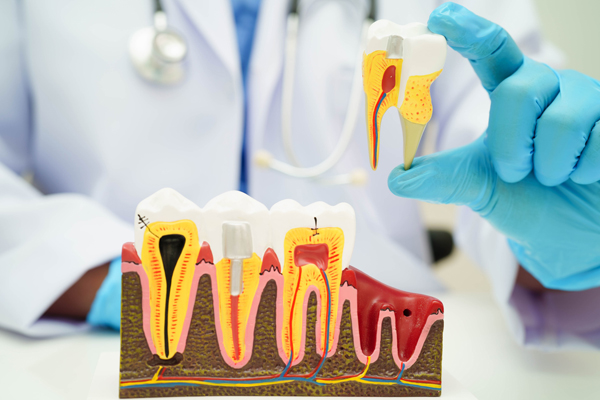 A dental bridge is a restorative option designed to replace missing teeth, improving function and appearance. Among the various types, a cantilever dental bridge is often chosen when only one supporting tooth is available on one side of the gap. Understanding the pros and cons of cantilever dental bridges helps patients determine if this solution aligns with their oral health needs.
A dental bridge is a restorative option designed to replace missing teeth, improving function and appearance. Among the various types, a cantilever dental bridge is often chosen when only one supporting tooth is available on one side of the gap. Understanding the pros and cons of cantilever dental bridges helps patients determine if this solution aligns with their oral health needs.
What Is a Cantilever Dental Bridge?
A cantilever dental bridge consists of a prosthetic tooth (pontic) attached to a single crown on an abutment tooth. This design is ideal when adjacent teeth are present only on one side of the missing tooth. The simplicity of this structure makes it suitable for specific cases, such as replacing a front tooth or when other restorative options are not viable.
Pros of Cantilever Dental Bridges
Minimally Invasive Procedure
Cantilever dental bridges are less invasive compared to implant-supported restorations, as they do not require surgery. The abutment tooth is prepared by removing a small amount of enamel to accommodate the crown, allowing for a quicker and more comfortable procedure.
Cost-Effective Solution
Cantilever bridges are generally more affordable than dental implants or other complex restorations. They provide a reliable option for patients seeking to restore their smile without significant financial investment.
Aesthetic Improvement
Cantilever dental bridges restore the appearance of a full smile, improving confidence and overall facial aesthetics. The materials, such as porcelain or ceramic, can be color-matched to blend seamlessly with natural teeth.
Cons of Cantilever Dental Bridges
Increased Stress on the Abutment Tooth
Since a cantilever dental bridge relies on a single abutment tooth for support, this tooth endures additional stress. Over time, the abutment tooth may become susceptible to damage, loosening, or decay if not properly cared for.
Limited Application
Cantilever dental bridges are unsuitable for all cases, particularly for replacing back teeth that endure significant chewing forces. Their design makes them more vulnerable to complications in areas with high bite pressure.
Potential for Imbalance
The unsupported end of a cantilever dental bridge can create an imbalance, leading to increased wear on the abutment tooth and adjacent teeth. This design requires careful planning and precise execution to minimize risks.
Maintenance and Longevity
Proper care is essential to extending the life of a cantilever dental bridge. Patients should maintain good oral hygiene, including brushing and flossing, and attend regular dental checkups. Specialized tools, such as interdental brushes or floss threaders, help clean around the bridge and prevent plaque buildup.
Discuss cantilever bridges with your dentist
Cantilever dental bridges offer a practical and cost-effective solution for replacing missing teeth in specific cases. While they provide aesthetic and functional benefits, patients should consider potential drawbacks such as added stress on the abutment tooth. Consulting with a dentist ensures patients receive a personalized treatment plan that meets their needs and promotes long-term oral health. For more information, schedule a consultation visit today at Sammamish Dental Center.
Request an appointment or call Sammamish Dental Center at 425-340-3113 for an appointment in our Issaquah office.
Related Posts
A dental bridge is a tooth replacement option that does not require incisions to be made into the gums. However, there are many different types of dental bridges, and finding the perfect one can feel overwhelming. While your dentist will usually recommend what they think is best, it can be helpful to know the available…
A dental bridge is a reliable and effective solution for replacing a single missing tooth. Losing a tooth can impact a smile's functionality and appearance, but this treatment restores those elements with ease. A dental bridge enhances oral health and confidence by filling the gap left by a missing tooth.A dental bridge replaces a missing…
Losing a tooth can affect more than just your smile; it can also impact how you eat, speak, and maintain oral health. Dental bridges are a popular and effective solution for filling gaps left by missing teeth. By understanding the different types of dental bridges, you can work with a general dentist to find the…


